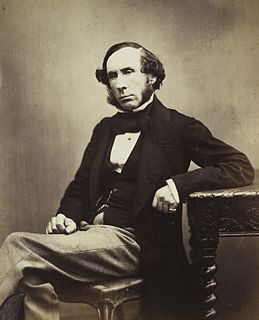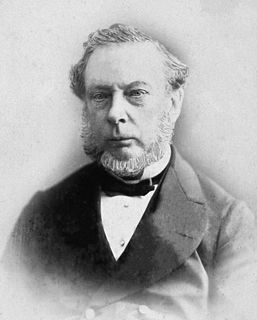John Cooke (1756–1838) was an English physician.

John Cooke (1756–1838) was an English physician.

Cooke was born in Lancashire, and was educated by Philip Doddridge to be a dissenting minister. He preached at Rochdale and at Preston. He then became a medical student at Guy's Hospital in London, going on to the University of Edinburgh and University of Leyden, where he graduated. [1]
Cooke became physician to the Royal General Dispensary in Bartholomew Close, in the City of London. In April 1784 he was elected physician to the London Hospital, a post he held for 23 years, and delivered the first clinical lectures given there. On 25 June in the same year he was admitted a licentiate of the Royal College of Physicians. In 1807 he was elected a fellow of the College of Physicians, and ten years later a Fellow of the Royal Society. He delivered the Croonian lectures at the College of Physicians in 1819, 1820, and 1821, and the Harveian oration in 1828. [1]
Cooke was president of the Medico-Chirurgical Society in 1822 and 1823. [1] He was also a Fellow of the Society of Antiquaries of London. [2] In his latter years he gave up practice and went out little. He died at his house in Gower Street, London, 1 January 1838. [1]
Cooke's thesis was on the use of Peruvian bark, in cases where there is no rise of temperature. In 1820 he began the publication of A Treatise on Nervous Diseases, completed in 1823. An American edition, in one volume, was published at Boston in 1824. This work is based on his Croonian lectures. It gives an account of the existing knowledge of hemiplegia, paraplegia, paralysis of separate nerves, epilepsy, apoplexy, lethargy, and hydrocephalus internus, without major innovations. The method is comparable to that of his friend Thomas Young in his Practical and Historical Treatise on Consumptive Diseases (1815). [1]
![]() This article incorporates text from a publication now in the public domain : Stephen, Leslie, ed. (1887). "Cooke, John (1756-1838)". Dictionary of National Biography . Vol. 12. London: Smith, Elder & Co.
This article incorporates text from a publication now in the public domain : Stephen, Leslie, ed. (1887). "Cooke, John (1756-1838)". Dictionary of National Biography . Vol. 12. London: Smith, Elder & Co.

Richard Bright was an English physician and early pioneer in the research of kidney disease. He is particularly known for his description of Bright's disease.

The Croonian Medal and Lecture is a prestigious award given at the invitation of the Royal Society of London and the Royal College of Physicians.

Sir William Blizard FRS FRSE PRCS FSA was an English surgeon.

Sir Anthony Carlisle FRCS, FRS was an English surgeon.

John Green Crosse, FRCS, FRS was a well-known English surgeon of his day, at the Norfolk and Norwich Hospital. After completing his apprenticeship in Stowmarket, he studied at St. George's Hospital and at the Windmill Street School of Medicine in London. He then moved to Dublin and Paris, finally settling in Norwich in 1815. In 1823 he became assistant-surgeon to the Norfolk and Norwich Hospital, and in 1826 surgeon. His reputation as a lithotomist, and in 1836 he was elected a Fellow of the Royal Society.
Dr Donald Monro FRS FRSE FRCP (1727–1802) was a Scottish physician and medical author.

Sir George Burrows, Bt, PRS, was an English physician and President of the Royal College of Physicians.
Thomas Mayo was a British physician.

William Brinton was an English physician.

John Latham, FRS, M.D. was an English physician. He became President of the Royal College of Physicians, and also updated their Pharmacopoeia.

George Owen Rees was a Welsh-Italian physician.

John Syer Bristowe (1827–1895) was an English physician.

William Coulson was an English surgeon.

Thomas Bevill Peacock was a cardiologist in London remembered for founding the London Chest Hospital. He also made a large contribution to the understanding of aortic dissection by publishing several case series on the condition.

George Leith Roupell M.D. FRS (1797–1854) was an English physician.

Sir George Smith Gibbes M.D. (1771–1851) was an English physician and writer.

George Budd M.D. was an English physician, medical writer and academic.

Dr John Hunter FRSE (1754–1809) was a Scottish physician linked to Jamaica.
Thomas Healde FRS was an English physician.
Walter Sydney Lazarus-Barlow was an English physician who was professor of experimental pathology at the Middlesex Hospital. He was a specialist in cancer and was one of the first physicians to research the effects of X-rays and radium on that disease. In 1909, he gave the Croonian Lecture on the subject of Radioactivity and Carcinoma.